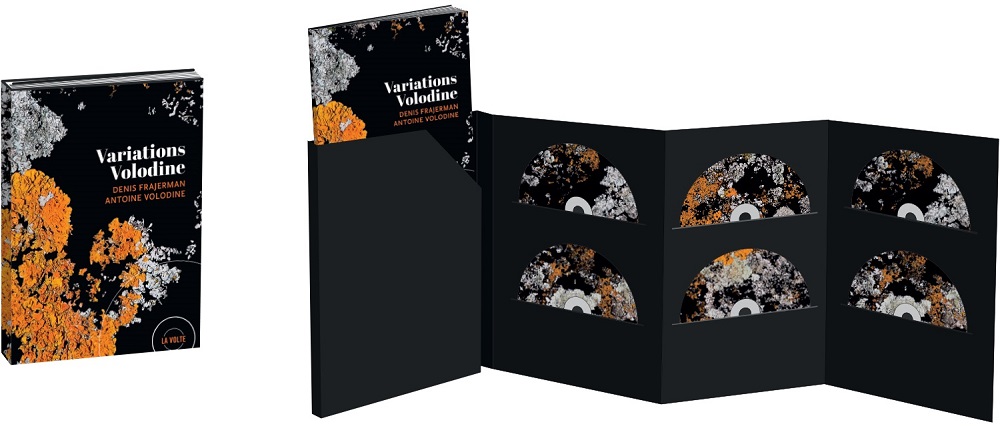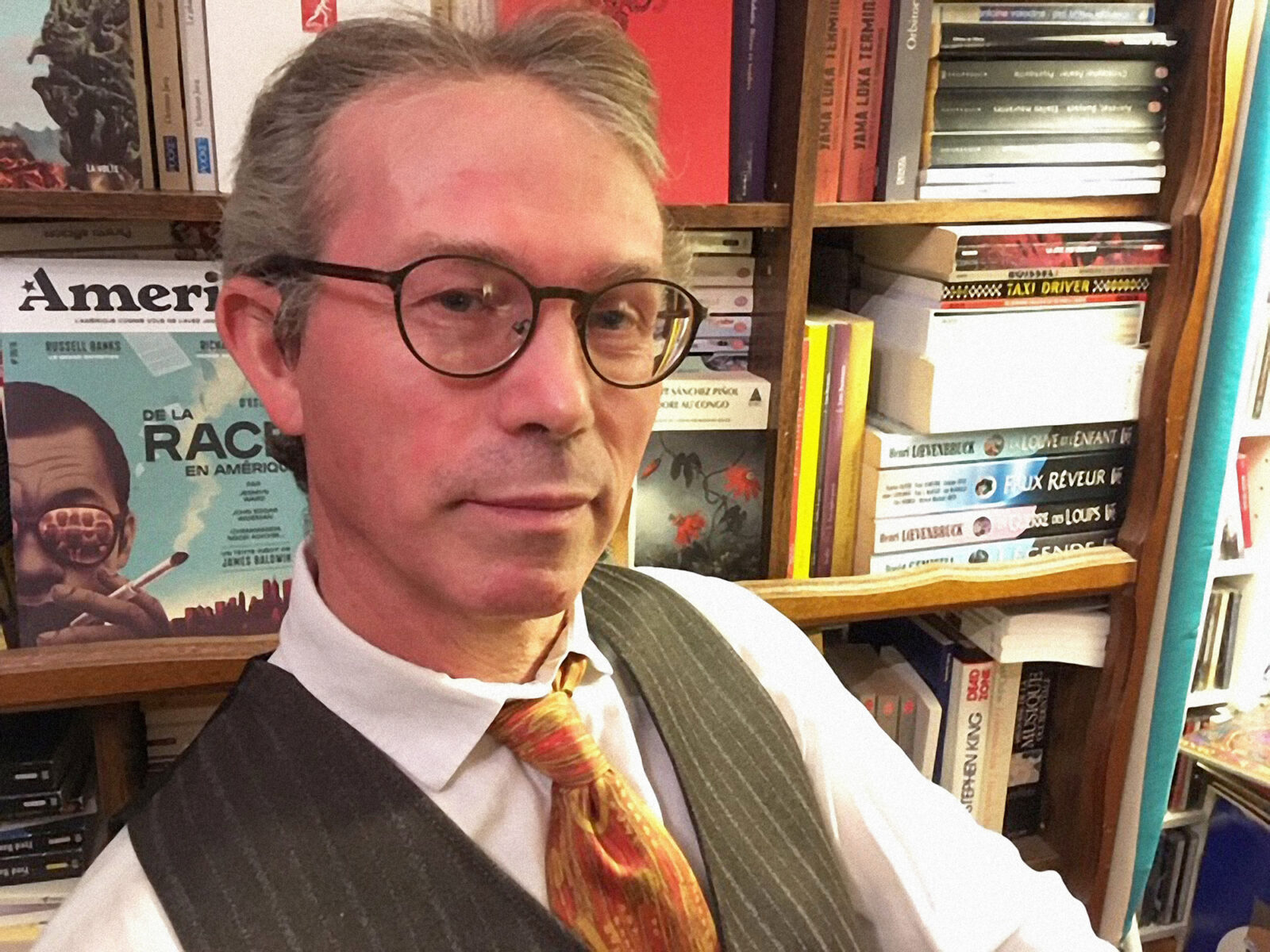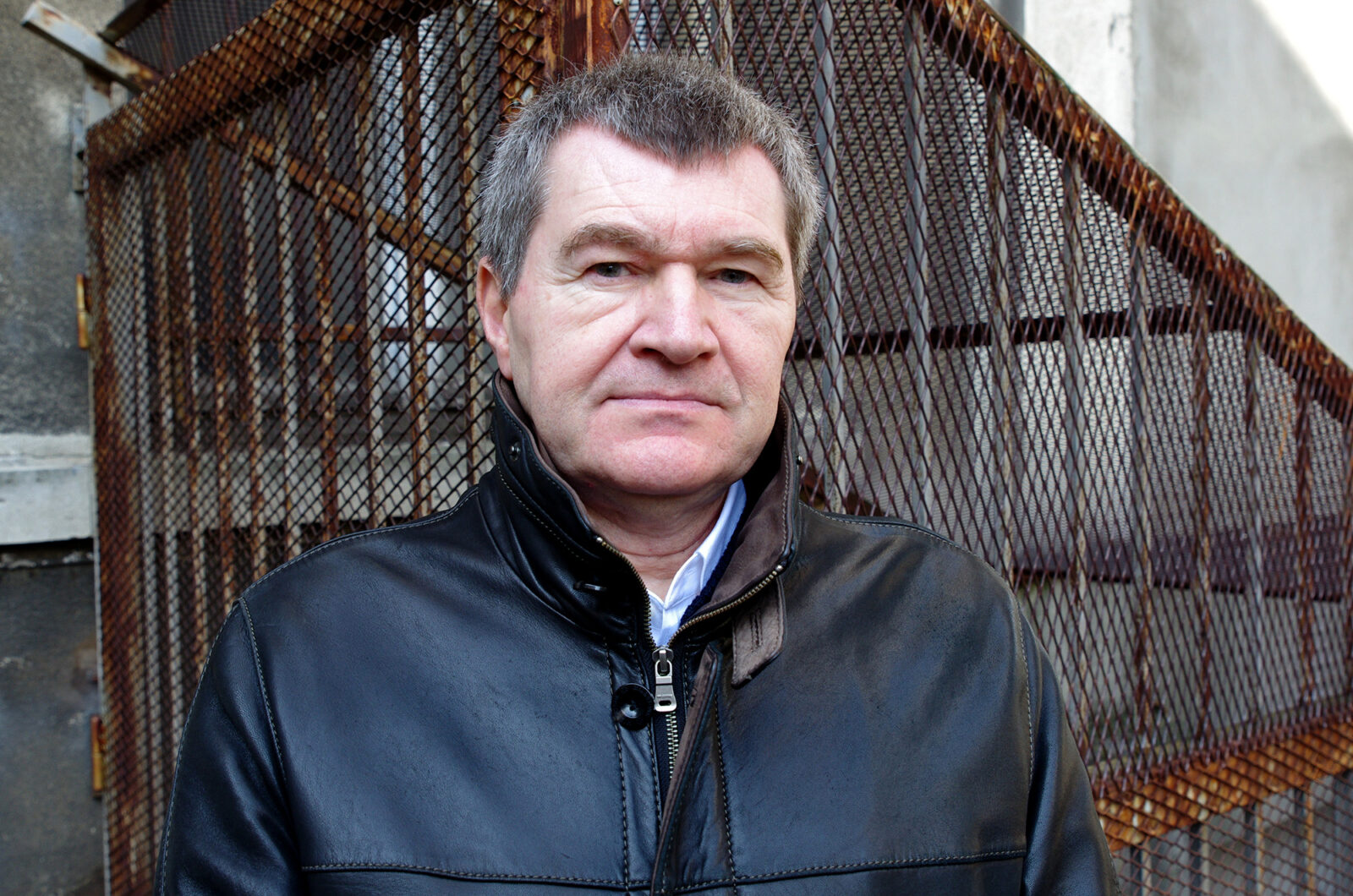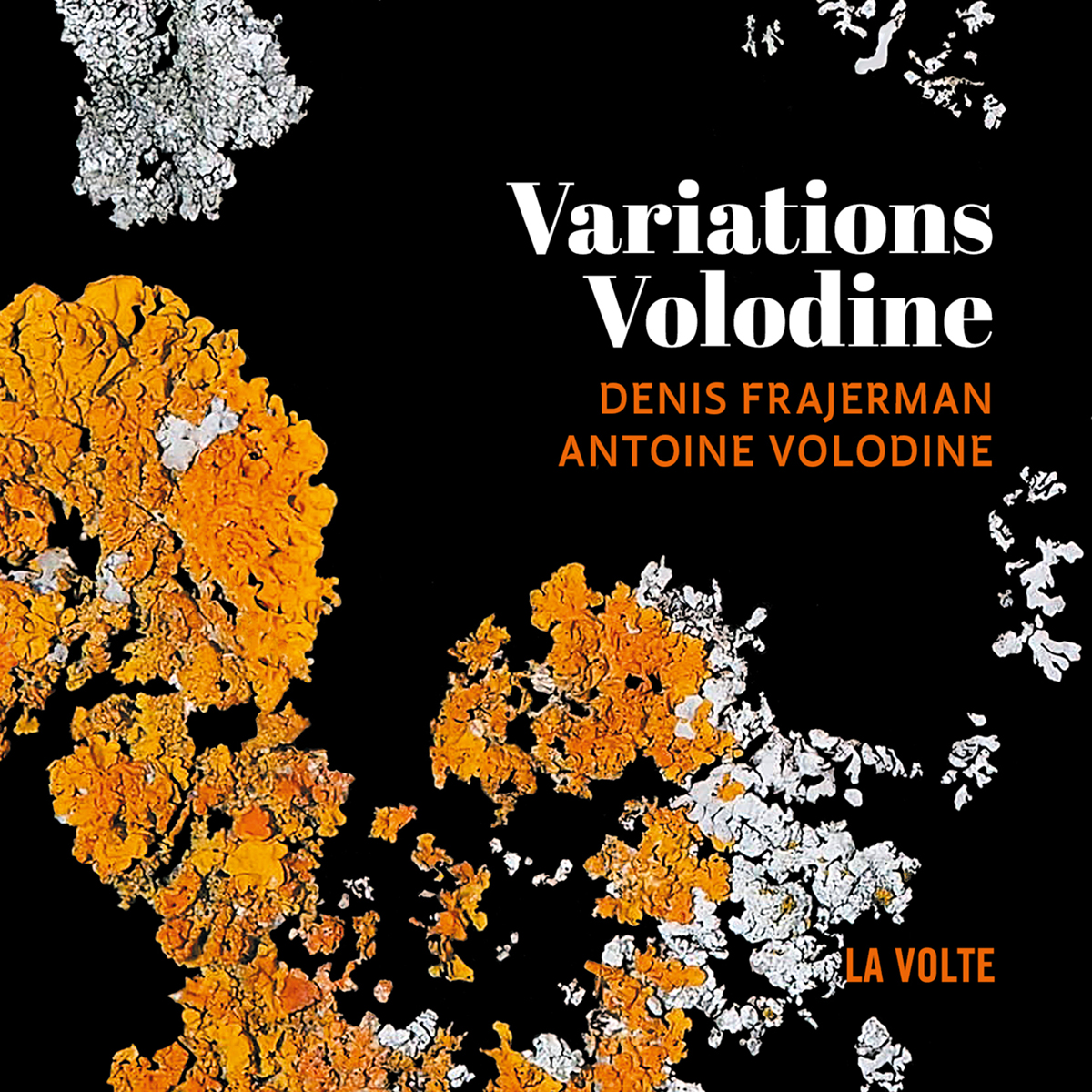‘Variations Volodine’ | Denis Frajerman & Antoine Volodine | Interview
‘Variations Volodine’ set Antoine Volodine’s prose poems to musical arrangements authored by Denis Frajerman.
The writer’s quill, by turns prophetic and incantatory, on the one hand, and the melodic enchantments of the musician-traveller on the other, together enhance the post-exotic universe at the heart of its poetic setting. This boxed set consists of six albums created by Denis Frajerman, as well as prose poems by Antoine Volodine. The whole is a labyrinth in which to become lost, with all the senses open to euphoria, bewitched by voices, among which at times is that of the writer himself.
About a month ago, La Volte released a truly stunning box set including a 64 pages book together with 6 CDs. Going through the project I feel that it was an enormous effort to finalize it. How long did you work on it?
Denis Frajerman: It took about four years, from the initial idea with the publisher Mathias Echenay from La Volte until its realization.
Were you aware of each other’s artists output before actually meeting?
Antoine Volodine: I heard of Denis Frajerman by Jacques Barbéri, at the end of the 80s. Both participated in the band Palo Alto and Barbéri had told me the greatest things about Frajerman’s first compositions, while pointing out to me that he knew my books and liked them. Very quickly then I was in contact with Frajerman, who at the time was creating surreal and bizarre music on small tapes, at least that’s what I knew of him. We corresponded, I went to his recording studio called Le Nautilus to record some prose poems. ‘Les Suites Volodine’ was a shock for me: a transposition into musical emotions of the images I had written. More exactly, the images that were born in me listening to the music of Frajerman stuck perfectly to what already existed in my small worlds.
Denis Frajerman: I was also shocked when Jacques Barbéri read me passages from Lisbonne dernière marge. But who had written these dazzling texts? Volodine! Jacques said to me. And there I had started reading all the books he had published and started to compose with the universe of Volodine. I had made sheets corresponding to the characters, at key moments and in the composition of the first piece, Le Montreur de cochons, many sounds resonate with the text. But therein lies the secret of alchemy.
And how did you first get in touch and what led to a project of this magnitude?
Antoine Volodine: That’s how we got in touch… very early, when you think about it, in our artistic history. More than thirty years ago, all the time of a lifetime of creation. And, of course, we stayed in touch all this time. The project of a joint creation as such crystallized around Vociférations, which was played in concert at the Lieu Unique in Nantes and corresponded to a commission from France Culture. But the initiatives of composition, CD publishing, adaptations, were for the most part taken solely by Frajerman.

Would you elaborate on the concept behind it?
Denis Frajerman: The concept was the slightly crazy idea of bringing together texts by Volodine and 6 CDs composed with or around the work of the author.
“We follow individuals in their difficult survival”
Mr. Volodine, would you like to talk about some of the main inspirations for your prose.
Antoine Volodine: This is a very broad question, so I will only answer it partially. At the origins of my books, of my little romantic universes composed with several voices, signed by several authors, there is a perception of the world which witnesses with despair the failure of humanism, the incessant bloody conflicts, the capitalist stupidity of humanity and war, to the systematic accumulation of disasters marking the history of the 20th century and our 21st century already well immersed into horror. The voices of my narrators are interested in following destinies mutilated by the machine of wars, the collapse of civilizations, the extinction of the human species. We follow individuals in their difficult survival. This is superimposed on a culture that is partly Russian, partly Asian, and above all revolutionary, internationalist and egalitarian. But another culture is at work, surreal, dreamlike, in love with fantasy and images, therefore linked to cinema and music, perhaps more than to literary inspiration as such.
Please elaborate on the phrase “post-exoticism” and its ties to Bardo – a Tibetan word naming the intervals of life.
Antoine Volodine: And yes, our universes are crossed, not always but often, by a game with death that our characters graze and go beyond. As in the Tibetan Book of the Dead, the deceased we portray continue their existence after death and live forever in worlds made up of distorted memories, fantasies and a new post-mortem reality. They live in floating worlds that it is easy to call the Bardo, and which are, for us, parallel worlds, worlds of fiction where, unfortunately, the ugly human wandering that they knew during their lifetime is repeated, exhaustingly, grimly and hopelessly. Our survivors are already dead, which gives the fiction many perspectives and relieves the characters of the anguish of their disappearance. I would add that placing characters in the Bardo makes it possible to develop events and images that make the fantastic, in a way, natural: no need to do complex literary acrobatics to justify bizarre metamorphoses, or the presence of bird-characters, or incursions of witches and magic, or the disproportionate lengthening of duration, temporal inconsistencies, no need to tediously explain what preceded the extinction of humanity, and, at the same time, no need to modify a type of writing that remains, basically, perfectly realistic…
Do you approach prose poems with a different creative angle?
Antoine Volodine: Several of the prose poems that appear in the box are to be linked to the origins of post-exoticism, they were written in the 80s, when I was wrongly considered a science fiction author. A superb surreal magazine had invited me to write poetic texts: Les Cahiers du Schibboleth. When the journal ceased to exist, I no longer published texts of this kind. But I never stopped writing them, and, with a different language, these poems became short texts that one encounters in many post-exotic novels, for example in Terminus Radieux where they express the magical whistling of the demiurge Soloviei. These are always moments of creation a little apart from the rest. They give me intense writing pleasure. In fact, even if they have a more concentrated texture than the fictional productions, I consider that they fit completely into the post-exotic continuity.
Mr. Frajerman, how difficult was it for you to work on the music? What was the process? Were you daily in touch and is your approach to laying down music a building block process?
Denis Frajerman: Composing has never been complicated for me. I am lucky to be constantly inspired, I have never known in my career the blank page of inspiration… So composing around Volodine’s work has always been a great pleasure. As soon as I finished a piece I sent it to him and he was always very enthusiastic. He even gave titles to some compositions.

You had a strong connection to literature as musicians since the beginning in Palo Alto. What in particular fascinates you the most when working with storytellers?
Denis Frajerman: The work on oral language. With the storytellers there has always been a lot of work done beforehand, reading the text, what atmospheres and what instruments to use… Attending rehearsals. These are exchanges that enrich my creation.
And how was it to work with Mr. Volodine?
Denis Frajerman: Marvelous.
“If nothing escapes, it means that nothing has the possibility of taking on a life of its own”
Do you find yourself to be a perfectionist, in control, or do your ideas lead you, taking on a life of their own?
Antoine Volodine: Perfectionist, certainly. I work and rework my texts constantly. I make sure that nothing escapes me, all post-exotic authors have the same creative discipline. So, in my opinion, if nothing escapes, it means that nothing has the possibility of taking on a life of its own.
Denis Frajerman: I always imagine my compositions while dreaming, I have waking dreams and the music springs up. I then play it with instruments from my collection, record it in my studio, then comes the real control, where I can handle the sounds in an extremely perfectionist way with the mixing : the final stage, the one I prefer.
One of the strongest elements in your music is atmosphere. Would you agree that it’s a basic ingredient in your work?
Denis Frajerman : Yes we can say that but my music is above all narrative. If I hadn’t plunged into music at 20 with the band Palo Alto, I would have become a writer. I had to make a choice. But the music has invaded everything since that time.

What is next for you in this weird dystopian world we started to live in?
Antoine Volodine: To tell the truth, no next step is planned, except that which consists in continuing to survive.
Denis Frajerman: Follow the road…
Klemen Breznikar
Denis Frajerman Official Website / Facebook / Bandcamp / YouTube
La Volte Official Website / Instagram




